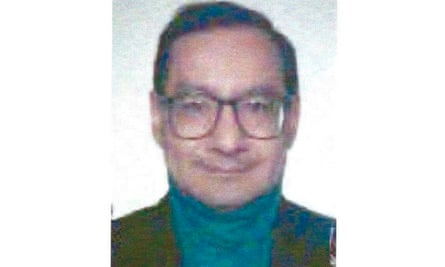Nothing in Manuel Rocha’s decorous demeanour suggested treachery.
Erudite if somewhat outspokenly conservative in his public political stances, he was respected among fellow diplomats as a thoughtful peer who gained added credibility by running an email list server circulating thought-provoking articles about his specialist field of Latin America and other regions.
Beneath the surface, however, deep-seated feelings of resentment coalesced with a carefully concealed sympathy for the underdog to allegedly drive Rocha to spy for communist Cuba for more than four decades.
More than half-a-lifetime of betrayal caught up with 73-year-old Rocha this week when US prosecutors filed a complaint with a federal court in Miami charging him with multiple counts of being a secret agent for Cuban intelligence.
“We allege that for over 40 years, Victor Manuel Rocha served as an agent of the Cuban government and sought out and obtained positions within the United States government that would provide him with access to non-public information and the ability to affect US foreign policy,” said the US attorney general, Merrick Garland.
US authorities assert that Rocha, who was born in Colombia before his family emigrated to New York when he was a child – was a Cuban agent from or before the time he joined the state department in 1981 and continued his clandestine activities after leaving the diplomatic service in 2002. Rocha has not yet entered a plea.

The allegations have stunned the US intelligence community, which has instigated an urgent damage assessment to discover what secrets might have been passed by a man who held a series of sensitive posts. These included ambassador to Bolivia, charge d’affaires to Buenos Aires and – embarrassingly – deputy head of the US interest section in Havana, Washington’s de facto embassy in Cuba.
“It’s huge,” said Jim Popkin, author of a book on Ana Montes, a former Defence Intelligence Agency analyst who spent 20 years in jail after being unmasked as a Cuban spy, before being freed this year.
“It’s unprecedented to have an ambassador accused of espionage.
“He served in the White House national security council, where part of his portfolio involved Cuba – and that’s a major problem. But to have served in the US interests section in Havana when it’s acknowledged that he was working for the other side is a nightmare scenario.
“He would have had access to and known the status and names of operatives working in Havana on behalf of the US. That’s a very dangerous proposition.”
Rocha’s 1995-1997 Havana posting coincided with a period when Cuba’s then-leader, the late Fidel Castro and his brother Raul, were believed to fear the prospect of a US invasion or assassination plot during Bill Clinton’s presidency. This followed tensions caused by Cuba’s shooting down of two small civilian planes by a Cuban-American group, Brothers to the Rescue, in 1996.
Charges were brought against Rocha after a series of cloak and dagger-type meetings with an undercover FBI officer posing as an agent for the Cuban general intelligence directorate (DGI).
A 20-page criminal complaint lodged with the court describes Rocha engaging in surveillance-detecting techniques typical of Cuban espionage tradecraft en route to an initial meeting with the undercover officer in November 2022.
The meeting had been arranged on a WhatsApp message after the FBI


